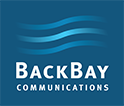New research from SuperReturn and BackBay Communications reveals marketing activity in the industry is set to increase
BOSTON & LONDON – Private equity professionals say that the need for a strong brand has increased amid growing competition in the industry according to a new joint study by SuperReturn, the world’s leading private equity conference series, and BackBay Communications, a public relations, marketing and branding consultancy that specialises in working with private markets firms.
The study, which surveyed general partners, limited partners, fund-of-funds, consultants and other private markets professionals across 27 firms globally on their attitudes and approaches to branding, reveals that 82% of respondents view private equity firms having a strong brand as ‘very important’ with the remainder saying it is ‘somewhat important’.
Generating awareness among CEOs and management teams for deal sourcing purposes was identified as the most common reason for needing a strong brand – cited by two-thirds (67%) of respondents – followed by the need to raise awareness among LPs and placement agents for fundraising (59%) and generating awareness among intermediaries, such as investment banks, for deal sourcing (56%).
The overwhelming majority (86%) said that the need for a strong brand has only intensified over last two years, driven by increasing competition for deals (41%), an increase in the number of private equity firms in the market (41%) and competition for LP funds (41%).
“The importance of focusing on building a strong brand to support fundraising and investment success in the private markets cannot be underestimated,” said Bill Haynes, Founder & CEO, BackBay Communications. “The number of private equity firms has exploded over the last decade, resulting in a lot of firms chasing a limited number of deals. And in the last 12 months the fundraising situation has become more challenging. GPs are looking at how they can make sure they stand out and stay in front of stakeholders across the board, including investors, company owners as well as potential employees. While performance will always be the key to success, differentiation, storytelling and ongoing communications are becoming a bigger part of the picture.”
“These findings support what we’re seeing and hearing from our network,” said Dorothy Kelso, Global Head of SuperReturn. “The industry has grown massively in size and is incredibly competitive so being able to stand out is important. As we enter a tougher economic environment, those firms with a compelling investment thesis and convincing USPs will be well-placed to succeed.”
One factor that looks set to become a more important focus for firms in the coming years is the expansion of the asset class to new pools of investors, particularly individual investors that have not historically had access to private capital and where awareness is very low. The RIA community was cited as one target group where having a strong brand is becoming increasingly important.
Building the brand
Despite the recognised importance of brand, nearly half (47%) of the private equity firms surveyed described their brand awareness as ‘fairly weak’ or ‘not very strong’, with just 13% describing it as ‘very strong’. It is no surprise then that the majority (67%) are planning to increase their investments in marketing and communications with e-mail communications, thought leadership content, conference speaking, case studies, social media and media relations all set to be primary areas of focus.
Advertising, sponsored content and podcasts were identified as a lower priority with few respondents looking to increase activity in these areas.
“Firms are recognising that creating a meaningful brand in private equity isn’t just a case of raising visibility, but about demonstrating expertise, credibility and authenticity,” said Stephen Fishleigh, Managing Director, London, at BackBay Communications. “By focusing efforts on creating written or visual content and conference speaking, firms are able to really share their perspectives and engage with their target audiences more effectively.”
To access the full report, visit https://www.backbaycommunications.com/private-markets/superreturn-backbay-private-equity-brand-study/
About BackBay Communications
BackBay Communications is an integrated public relations, content marketing, and digital agency focused on the financial services sector including private markets, asset and wealth management, financial technology, and Impact investing / ESG. BackBay works with clients to help them build their brands and drive new business. BackBay has offices in Boston and London and global agency partner relationships. For more information, please visit www.BackBayCommunications.com.
About SuperReturn
SuperReturn runs a series of leading private equity events that take place across the world. SuperReturn International in Berlin is SuperReturn’s cornerstone event and the world’s largest private equity and venture capital event. This five-day conference brings together thousands of private equity and venture capital professionals, including 1,300+ Limited Partners (LPs), 2,000+ General Partners (GPs) and 200+ expert speakers from 60+ countries, to network and discuss current trends and opportunities within the private equity industry.
Contact:
Stephen Fishleigh
Stephen.fishleigh@backbaycommunications.com
+44 7904 114 002
Bill Haynes
Bill.haynes@backbaycommunications.com
+1 617-391-0790
Boston, MA 02116
T: 617-391-0790
London, W1F 8FL
T: +44 (0) 203 475 7552


